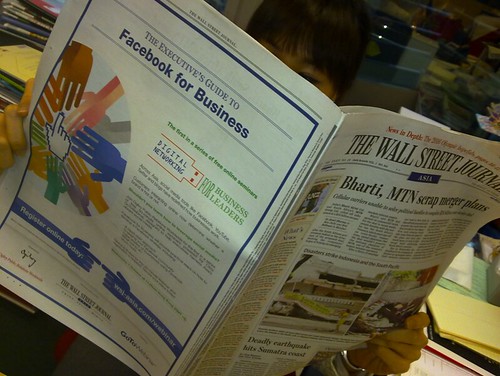Faulty Study Left Uncorrected
Sunday, November 27, 2011

It's hard to admit you made a mistake. Daniel Klein, an economics professor at George Mason University, can tell you that, but he can also tell you how to move past it. Klein wrote an opinion column over a year ago saying that liberals score much lower than conservatives on a test over basic economics, according to his newest study. He published his column in the Wall Street Journal, which headlined: "Are You Smarter than a Fifth-Grader? Self-indentified liberals and Democrats do badly on questions of basic economics".
Klein later took a second look at his data and concluded that his questions were loaded, or followed what he termed the "myside bias"- human's tendency to judge an argument based off of how closely it fits to their standard political views. Klein recently recanted his earlier findings and published the new results- but not in the Wall Street Journal. The Columbia Journalism Review emailed Klein asking why the new column appeared in the Atlantic instead of WSJ, and he responded that they had "declined the idea of a follow-up".
But shouldn't that be considered irresponsible journalism? The well-respected journal now has full knowledge that it ran an erroneous article, and the author is stepping up of his own free will to correct his past mistake. For the Wall Street Journal to decline the corrections is a loss of responsibility to their readers, some of which will never see the corrections simply because they don't read the Atlantic. The editors need to swallow their pride and put their reader's needs first.
Photo credit/creativecommons.org

